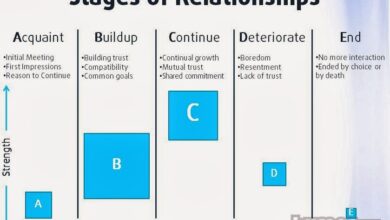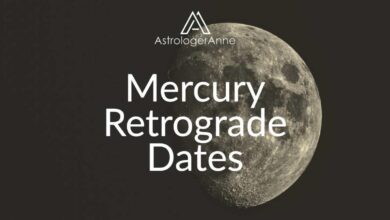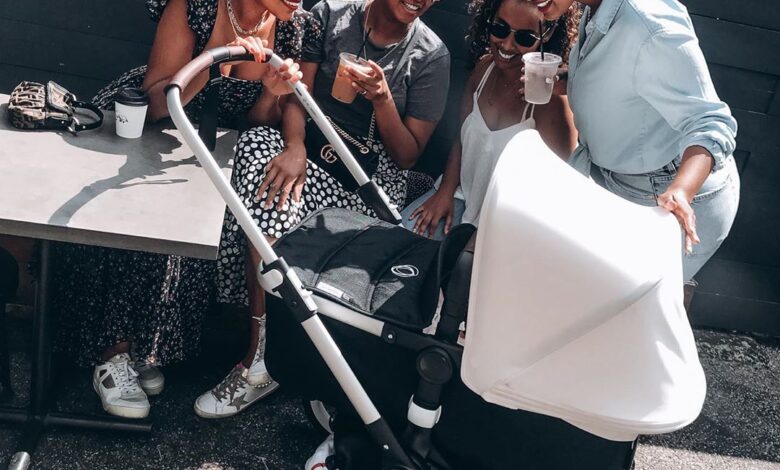
Rules dating in your 30s is a fascinating exploration of modern dating, acknowledging the unique pressures and expectations this age group faces. From navigating career ambitions and financial stability to understanding societal shifts in dating, this deep dive provides a comprehensive guide for singles in their 30s. We’ll examine the evolving expectations, communication strategies, and methods for finding compatible partners in today’s diverse world.
This isn’t just about rules, but about understanding yourself and your priorities, so you can forge meaningful connections.
This discussion unpacks the common dating mistakes to avoid, effective communication strategies, and exploring the nuances of modern dating apps and in-person events. We’ll also examine how cultural backgrounds and personal values shape dating choices. Ultimately, this guide empowers you to confidently navigate the complexities of dating in your 30s, leading to fulfilling relationships. The discussion covers a spectrum of topics from relationship dynamics and goals to managing expectations, technology’s role, and avoiding common pitfalls.
It’s a roadmap to success in the modern dating world.
Dating Expectations in Your 30s
Navigating the dating scene in your 30s is a unique experience, distinct from the carefree days of your 20s. This decade brings a shift in priorities, societal pressures, and expectations that shape how individuals approach relationships. The pressures are often subtle, yet powerful, influencing the choices made and the journeys taken.The landscape of dating has changed significantly over time.
In previous decades, dating was often focused on more traditional norms, with a strong emphasis on marriage and family as milestones. Now, while those aspirations still exist, they are often intertwined with personal and professional goals. Singles in their 30s often seek partners who align with their ambitions, providing support and understanding in the complexities of their lives.
Common Dating Expectations
Dating in your 30s often involves a set of unspoken expectations, rooted in societal norms and personal aspirations. There’s a growing emphasis on compatibility with shared values and life goals. Many individuals prioritize finding a partner who shares similar career aspirations, financial stability, and potential family plans. This is a significant departure from the dating landscape of earlier decades, where priorities often revolved around shared interests and superficial attraction.
Comparison of Dating Expectations
Dating expectations in the 30s differ considerably from earlier decades. In the past, dating often centered around casual encounters, with a focus on short-term relationships. Now, individuals are often more discerning, seeking long-term commitments and deeper connections. The pursuit of a fulfilling partnership has taken precedence over the thrill of exploration and novelty. This shift reflects a more mature perspective on relationships, where individuals are often more selective and deliberate in their choices.
Impact of Career Goals, Finances, and Family Aspirations
Career goals, financial stability, and family aspirations significantly influence dating choices in the 30s. Individuals may prioritize partners who can support their ambitions or who are on a similar path. Financial stability is often a key consideration, as individuals in their 30s often have established financial responsibilities and future goals. The desire for a partner who understands and values these goals is a crucial factor in the dating landscape.
For example, someone focused on starting a family might seek a partner who shares similar values and desires.
Navigating dating in your 30s is all about finding someone who appreciates you, flaws and all. It’s about less pressure and more genuine connection. Plus, embracing a confident style, like Jennifer Lawrence’s leopard print comeback here , can boost your self-assurance. Ultimately, dating in your 30s is about choosing someone who gets you, your passions, and your unique sense of style.
Priorities of Singles in Their 20s and 30s
| Criteria | Singles in their 20s | Singles in their 30s |
|---|---|---|
| Primary Focus | Exploring different interests, personal growth, and finding a life partner | Building a fulfilling life, achieving career goals, and establishing a long-term relationship |
| Financial Stability | Less emphasis; often prioritizing experiences and lifestyle | More emphasis; seeking a partner who is financially secure or can contribute to their financial goals |
| Career Goals | Exploring various career paths; developing skills | Achieving career stability; pursuing advancement or specialization |
| Family Plans | Less defined; open to various possibilities | More defined; may be considering family and children |
| Relationship Expectations | Open to casual or long-term relationships | Often seeking long-term commitments and partnership |
Common Dating Mistakes to Avoid
Avoid the common mistakes that can hinder your dating journey in your 30s.
- Failing to clearly define your relationship goals.
- Expecting your partner to fulfill all your needs and desires.
- Ignoring red flags in the early stages of dating.
- Comparing your relationship to others.
- Letting fear of rejection prevent you from pursuing meaningful connections.
- Rushing into a relationship before you’re ready.
- Not communicating your needs and boundaries effectively.
Communication and Boundaries
Navigating the complexities of dating in your 30s requires a nuanced approach to communication and boundaries. It’s a time when individuals often have more established life goals, career paths, and personal expectations, which significantly influence their approach to relationships. This makes open and honest communication crucial for building healthy, sustainable connections.Effective communication isn’t just about expressing your needs; it’s also about actively listening and understanding your partner’s perspective.
A foundational aspect of this is establishing clear boundaries early on. This creates a safe space for both individuals to grow and thrive within the relationship.
Effective Communication Strategies
Open and honest communication is essential for building trust and mutual respect in a relationship. This includes expressing your thoughts and feelings clearly and respectfully, while also actively listening to your partner’s perspective. Regular, honest check-ins about expectations and needs are vital. This might involve discussing things like personal time, financial responsibilities, and family involvement. Setting clear boundaries early on prevents misunderstandings and potential conflict later.
Honesty and Transparency
Honesty and transparency are fundamental to building a strong foundation in any relationship. This means being truthful about your intentions, values, and expectations. Avoiding dishonesty, even in seemingly minor aspects, can erode trust over time. Being transparent about your past experiences, current commitments, and future goals fosters understanding and helps prevent potential surprises or disappointments later. It’s about building a shared understanding of each other’s lives.
Navigating Conflict and Disagreements
Disagreements are inevitable in any relationship. The key is how you address them. Instead of resorting to blame or defensiveness, focusing on active listening and understanding each other’s perspectives is crucial. Finding common ground and working collaboratively towards solutions is often more effective than trying to “win” an argument. Learning to compromise is a critical skill in navigating disagreements constructively.
A calm, respectful approach to conflict resolution is more likely to lead to positive outcomes.
Common Dating Dealbreakers for 30-Somethings
Establishing clear dealbreakers early on helps prevent wasted time and effort. These are not just about major red flags but also smaller, recurring patterns of behavior that may not be immediately obvious.
- Lack of respect for personal boundaries.
- Inconsistent communication patterns.
- Unwillingness to compromise.
- Unrealistic expectations in the relationship.
- Failure to take responsibility for their actions.
- Incompatibility in long-term goals and values.
- Poor communication skills, especially when facing conflict.
Identifying and Addressing Red Flags
Recognizing red flags in potential partners is vital for preventing potentially damaging relationships. Pay attention to recurring patterns of behavior, not just isolated incidents.
- Controlling behavior.
- Emotional manipulation tactics.
- Lack of empathy and understanding.
- Inability to communicate effectively.
- Commitment issues.
- Negative communication patterns, such as belittling or undermining.
- Poor treatment of others (friends, family, or service providers).
Finding and Meeting Potential Partners
Navigating the dating scene in your 30s can feel different from your younger years. The pressures and expectations shift, and the need for a meaningful connection becomes more prominent. Finding someone compatible and building a relationship takes more than just chance encounters; it requires intentional effort and a strategic approach. This section will explore various avenues for meeting potential partners in your 30s, from the popular digital platforms to more traditional methods.Finding a partner in your 30s often involves a blend of modern approaches and tried-and-true strategies.
Successful dating in this decade relies on understanding the strengths and weaknesses of different avenues, crafting a profile that accurately represents you, and actively engaging in social settings that allow for meaningful connections.
Modern Dating Avenues
Modern dating apps and events have revolutionized the way people connect. They offer a structured platform for meeting potential partners, often filtering out those who aren’t a good fit. However, each method has its own advantages and disadvantages.
Dating Apps: A Double-Edged Sword
Dating apps have become ubiquitous, providing a vast pool of potential partners. They are convenient, allowing you to connect with people from diverse backgrounds and locations. However, the sheer volume of choices can be overwhelming, and profiles can often be misleading. Furthermore, the emphasis on superficial aspects can detract from genuine connections. Some apps cater to specific interests or lifestyles, which can be beneficial for those seeking partners with shared passions.
- Advantages: Convenience, wide range of potential partners, ability to filter based on specific criteria, often offering opportunities for shared interests. An example would be niche apps catering to specific hobbies, professions, or lifestyles, enabling users to find partners with compatible passions.
- Disadvantages: Potential for misrepresentation, overwhelming volume of choices, emphasis on superficial aspects, and the possibility of encountering fraudulent profiles or individuals with ulterior motives. A real-life example might be a user creating a profile that does not reflect their true personality, leading to disappointment upon meeting in person.
Events and Social Gatherings
Networking and attending events related to your interests can provide a more authentic way to meet potential partners. These settings offer opportunities for meaningful interactions and allow for a more organic connection, reducing the pressure of dating apps. However, they require more effort in terms of time commitment and the potential for less control over who you meet.
- Advantages: More natural and organic interactions, increased likelihood of finding genuine connections, ability to gauge shared interests and values in person. An example of this would be attending a book club or a workshop related to your profession, enabling you to connect with like-minded individuals.
- Disadvantages: Requires more time and effort, less control over who you meet, and potential for less convenience compared to apps. A real-life example of a disadvantage might be attending a social gathering where you don’t connect with anyone.
Crafting a Compelling Dating Profile
A well-crafted online dating profile is crucial for attracting compatible partners. It should accurately reflect your personality and goals, making a positive first impression. Avoid generic descriptions and clichés.
- Tips for Crafting Compelling Profiles: Use specific and descriptive language to highlight your interests and personality, be authentic and honest, provide clear and concise information, showcase your hobbies and passions, and avoid overly-positive or negative statements.
Networking and Meeting Potential Partners
Expanding your social circle through hobbies, professional events, or community activities can create opportunities for meeting potential partners.
- Strategies for Networking: Join clubs or groups related to your interests, volunteer for causes you care about, attend industry events, or participate in workshops. These activities create natural opportunities to connect with people who share similar values and interests.
Online Dating Platform Comparison
| Platform | Pros | Cons |
|---|---|---|
| Match.com | Large user base, extensive search filters | Can be expensive, potential for scams |
| Bumble | Focuses on women initiating conversations, emphasizes safety | Limited user base in certain areas, potential for mismatches |
| Tinder | High user volume, quick matches | Emphasis on superficial interactions, potential for casual encounters |
| OkCupid | Extensive questionnaires, potential for deeper connections | Can be overwhelming, longer process to find matches |
Dating in a Diverse Society
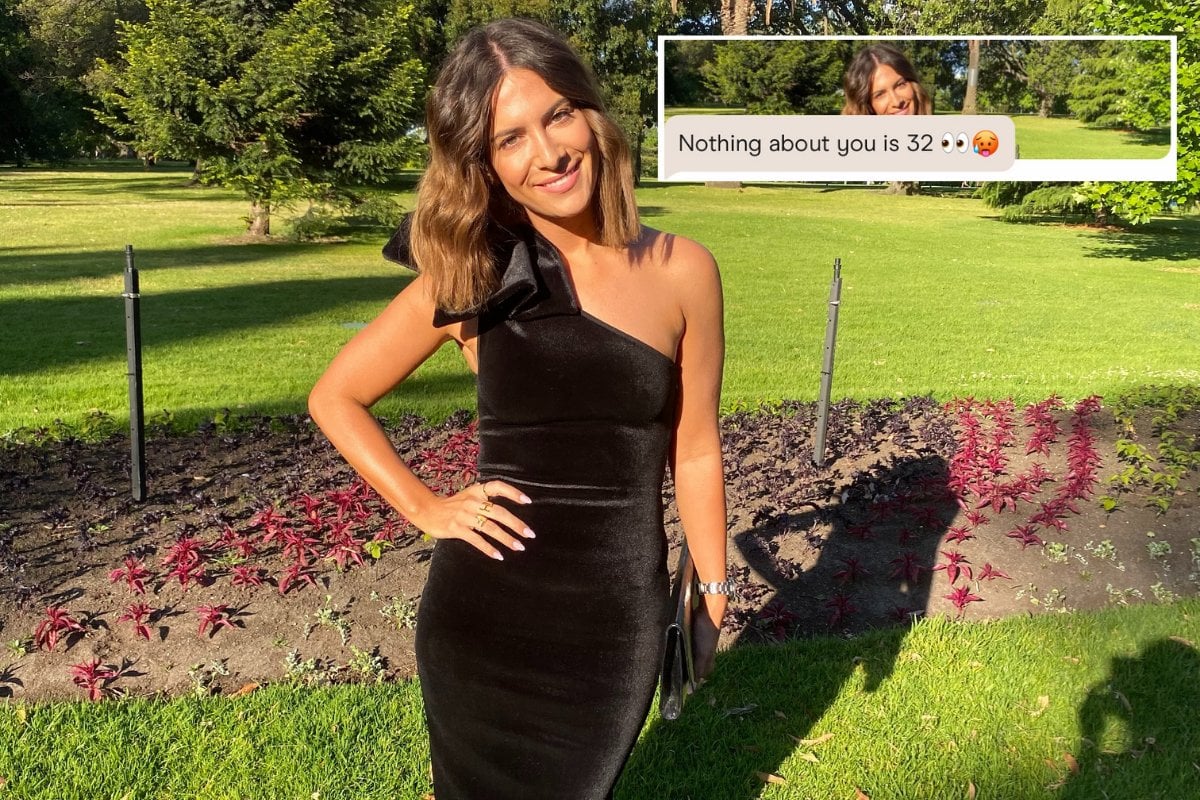
Navigating the complexities of modern dating, especially in your 30s, often involves encountering people from diverse cultural and societal backgrounds. Understanding these differences is crucial for fostering meaningful connections and respectful interactions. This exploration delves into the unique challenges and opportunities presented by diverse dating experiences.Cultural and societal differences can significantly impact dating experiences. Differences in communication styles, expectations about relationships, and even views on personal space can create misunderstandings or even friction.
However, these differences can also be enriching, leading to a deeper understanding of various perspectives and broadening one’s worldview.
Cultural Differences in Dating Expectations
Different cultures have varying expectations regarding courtship, commitment, and the role of family in relationships. Understanding these nuances is essential for respectful communication and avoiding potential conflicts. For instance, some cultures emphasize arranged marriages, while others prioritize individual choice. Similarly, the level of involvement family members have in a couple’s decision-making can vary dramatically.
Approaching Dating Someone with Different Backgrounds
Effective communication is key when dating someone with a different background. Actively listen to understand their perspective, ask clarifying questions, and avoid making assumptions. Showing genuine interest in their culture and values demonstrates respect and builds trust. Avoid imposing your own cultural norms or expectations on your partner. Instead, seek to learn and grow together.
Learning a few key phrases in your partner’s native language can also demonstrate your commitment to understanding their culture.
Overcoming Cultural Barriers and Fostering Mutual Respect
Cultural barriers can be overcome through open communication, empathy, and a willingness to learn from each other. Compromise and flexibility are crucial. For example, if one partner has a strong family tradition of regular family dinners, the other might be willing to adjust their schedule to include them. This demonstrates a willingness to adapt and appreciate the other’s background.
Prioritizing mutual respect, active listening, and a commitment to understanding are fundamental in overcoming cultural barriers.
Diverse Dating Experiences
Many individuals in their 30s have had positive experiences dating people from different backgrounds. These relationships can offer a unique perspective and enrich personal growth. For example, one person might have found a deeper appreciation for diverse cuisines and traditions. Another might have learned new communication strategies or developed a broader understanding of societal norms. Sharing stories and experiences can help foster a sense of community and empathy.
Influence of Religion and Beliefs on Dating Choices
Religious and personal beliefs often play a significant role in dating choices. Individuals may prioritize partners who share similar values or beliefs. For instance, someone who values religious practice may seek a partner who also prioritizes their faith. Understanding the importance of religious or personal beliefs in a partner’s life is crucial in navigating potential differences and conflicts.
Navigating dating in your 30s can feel like navigating a minefield of unspoken rules. It’s a whole different game from the carefree days of your 20s, and sometimes you just need to loosen up and embrace the vibe. Plus, just like how the shag became the haircut of the moment, a certain aesthetic evolves , and you need to find your own modern style.
So, ditch the pressure and focus on genuine connection – that’s the real key to dating success in your 30s.
Finding common ground, respect, and open dialogue are key to navigating these potential differences.
Dating Etiquette from Various Cultural Backgrounds
| Cultural Background | Dating Etiquette |
|---|---|
| Western Cultures (e.g., US, UK) | Generally, dating is more individualistic, with emphasis on personal choice and independence. Public displays of affection are common. |
| East Asian Cultures (e.g., Japan, China) | Dating often involves more formality and respect for elders. Direct displays of affection may be less common. |
| Latin American Cultures (e.g., Mexico, Brazil) | Family involvement in relationships is often significant. Strong emphasis on affection and social gatherings is common. |
| South Asian Cultures (e.g., India, Pakistan) | Family approval and cultural traditions play a substantial role in dating decisions. Courtship rituals can be complex. |
This table highlights some general differences in dating etiquette across various cultural backgrounds. It is crucial to remember that these are generalizations and individual experiences can vary greatly within each culture. Generalizations should not be used to make assumptions or judgments about any particular individual.
Relationship Dynamics and Goals
Thirty-somethings often find themselves navigating a unique landscape of relationship expectations and aspirations. The demands of career advancement, financial stability, and personal growth frequently intersect with the desire for a fulfilling romantic partnership. This period is characterized by a shift in priorities compared to earlier stages of life, often focusing on long-term commitment and shared goals.Individuals in their 30s typically seek relationships that offer emotional support, mutual respect, and a sense of shared purpose.
The pursuit of lasting connection and building a life together are central to their goals, contrasting with the more exploratory phases of dating in their 20s.
Common Relationship Goals in Your 30s
The relationship goals of individuals in their 30s are frequently rooted in a desire for stability and a shared vision for the future. Financial security and career aspirations often play a significant role in determining compatibility and long-term prospects.
- Shared Values and Goals: Thirty-somethings often seek partners who share their core values, such as family, career, and personal growth. The alignment of long-term aspirations and life goals is critical in fostering a lasting connection.
- Emotional Intimacy and Support: Emotional intimacy and mutual support are paramount. Individuals in their 30s value partners who understand and appreciate their emotional needs and provide consistent encouragement during challenging times.
- Commitment and Long-Term Vision: The concept of a lasting commitment is a defining factor. The desire to build a life together, perhaps including marriage or cohabitation, is a common goal.
- Personal Growth and Fulfillment: Maintaining individual growth and fulfillment is recognized as essential. Partners should support each other’s pursuits and aspirations, recognizing that personal happiness is crucial for a healthy relationship.
Comparison with Earlier Life Stages
The relationship landscape shifts significantly as individuals move from their 20s to their 30s. Priorities evolve from exploration and self-discovery to a focus on building a life with a partner.
- 20s: Focus on self-discovery, exploration, and experimentation. Relationships often serve as a stepping stone for personal growth. Commitment is often less of a priority compared to the 30s.
- 30s: Desire for stability, commitment, and shared vision. Relationships become more deeply intertwined with long-term life goals, like careers, finances, and family planning.
Significance of Long-Term Commitment
Long-term commitment in relationships is a significant aspect of adult life. This is often linked to a sense of security, shared experiences, and the opportunity for personal growth alongside a partner.
“Long-term commitment fosters a sense of security and shared responsibility, which can contribute to greater personal and relational fulfillment.”
Importance of Personal Growth
Personal growth within a relationship is crucial for sustaining the connection and preventing stagnation. A relationship should allow both partners to continue evolving and pursuing their aspirations.
- Supporting Each Other’s Aspirations: A healthy relationship supports and encourages personal growth in both partners. This can manifest in encouraging each other’s ambitions and offering support through challenging times.
- Maintaining Individuality: Maintaining individual identities is essential. A healthy relationship recognizes the importance of individual hobbies, interests, and goals, fostering a balanced dynamic where both partners can thrive.
Trust and Mutual Support
Trust and mutual support are foundational elements of a lasting relationship. These characteristics foster a sense of security and enable partners to navigate life’s challenges together.
Navigating dating in your 30s is all about confidence and knowing what you want. It’s about less games and more genuine connection. While you’re focusing on finding someone compatible, remember to pamper yourself too! A great way to boost your confidence is with the perfect manicure. For the best gel nail polish options, check out this guide: best gel nail polish.
Ultimately, remember that dating in your 30s is about finding someone who appreciates you for who you are, not just for your perfectly polished nails.
“Trust and mutual support create a strong foundation for a lasting relationship, allowing partners to face life’s challenges together.”
Relationship Blueprint for Thirty-Somethings
A “relationship blueprint” for individuals in their 30s involves a clear understanding of individual needs, shared goals, and expectations for the relationship.
- Identifying Shared Values: Understanding core values, such as career, family, or personal growth, forms a strong foundation for compatibility.
- Defining Expectations: Open communication about expectations for the relationship is essential, including communication styles, level of commitment, and desired future trajectory.
- Prioritizing Personal Growth: Recognizing the importance of individual growth is key. This involves encouraging each other’s aspirations and supporting each other’s journeys.
Managing Expectations and Avoiding Pitfalls
Navigating the dating scene in your 30s can be a rewarding but sometimes challenging experience. It’s a time when personal and professional lives are often intertwined, expectations are higher, and the desire for a meaningful connection is strong. This stage of life requires a nuanced understanding of yourself, your needs, and potential partners, to ensure a positive and fulfilling experience.Understanding the potential pitfalls and proactively managing expectations are crucial for avoiding disappointment and fostering healthy relationships.
This involves self-reflection, emotional intelligence, and the ability to recognize and navigate relationship conflicts constructively.
Common Pitfalls and Challenges
The dating landscape in your 30s presents unique challenges. For many, career aspirations, financial responsibilities, and established social circles can create pressures and expectations that may not align with the idealized image of dating. This can lead to unrealistic expectations about the relationship dynamic, potentially leading to dissatisfaction and disappointment. It’s important to acknowledge that the dating process may not always unfold in the way one initially envisions.
Importance of Self-Reflection and Emotional Intelligence
A strong foundation of self-awareness is critical. Understanding your personal values, needs, and past relationship patterns allows for more conscious choices. Recognizing your emotional triggers and responses is key to maintaining emotional intelligence in relationships. This involves the ability to communicate effectively, empathize with others, and manage conflicts constructively. This proactive approach helps prevent potential pitfalls and strengthens the likelihood of finding a compatible partner.
Practical Strategies for Managing Unrealistic Expectations
It’s essential to acknowledge that dating should be approached with a balanced perspective. One effective strategy is to prioritize personal well-being and self-care. Focus on your personal growth and fulfillment outside of the relationship. This provides a healthy foundation for any potential partnership. Don’t allow the search for a partner to overshadow your own happiness.
Signs a Relationship is Not a Good Fit
A healthy relationship is built on mutual respect and understanding. Recognizing when a relationship is not a good fit is an important step in the dating process. A relationship that consistently lacks respect, open communication, or mutual support signals a potential incompatibility. This includes repeated instances of disrespect, dishonesty, or a lack of emotional intimacy.
- Frequent arguments about fundamental values or life goals.
- A lack of genuine effort in maintaining the relationship.
- Feeling pressured or controlled by your partner.
- A significant lack of trust and transparency.
Setting Realistic Relationship Goals
Setting realistic relationship goals is crucial. Focus on building a connection based on shared values, mutual respect, and a commitment to open communication. It’s important to recognize that compatibility is a complex interplay of various factors. Avoid the trap of projecting unrealistic expectations onto your partner.
- Prioritize open communication and mutual understanding.
- Set clear expectations about the relationship dynamic, including personal space and time.
- Acknowledge and accept your partner’s individuality.
- Strive for a partnership based on shared growth and mutual support.
Navigating Relationship Conflicts Effectively
Conflict is inevitable in any relationship. It’s how couples handle these conflicts that determines the relationship’s trajectory. Developing effective conflict resolution strategies is essential for a healthy relationship. This includes active listening, expressing needs clearly, and finding mutually acceptable solutions. Avoid escalating conflicts or resorting to personal attacks.
- Establish clear and respectful communication channels.
- Practice active listening to understand your partner’s perspective.
- Focus on finding solutions that meet both your needs.
- Seek professional guidance if needed.
Navigating Technology in Dating: Rules Dating In Your 30s
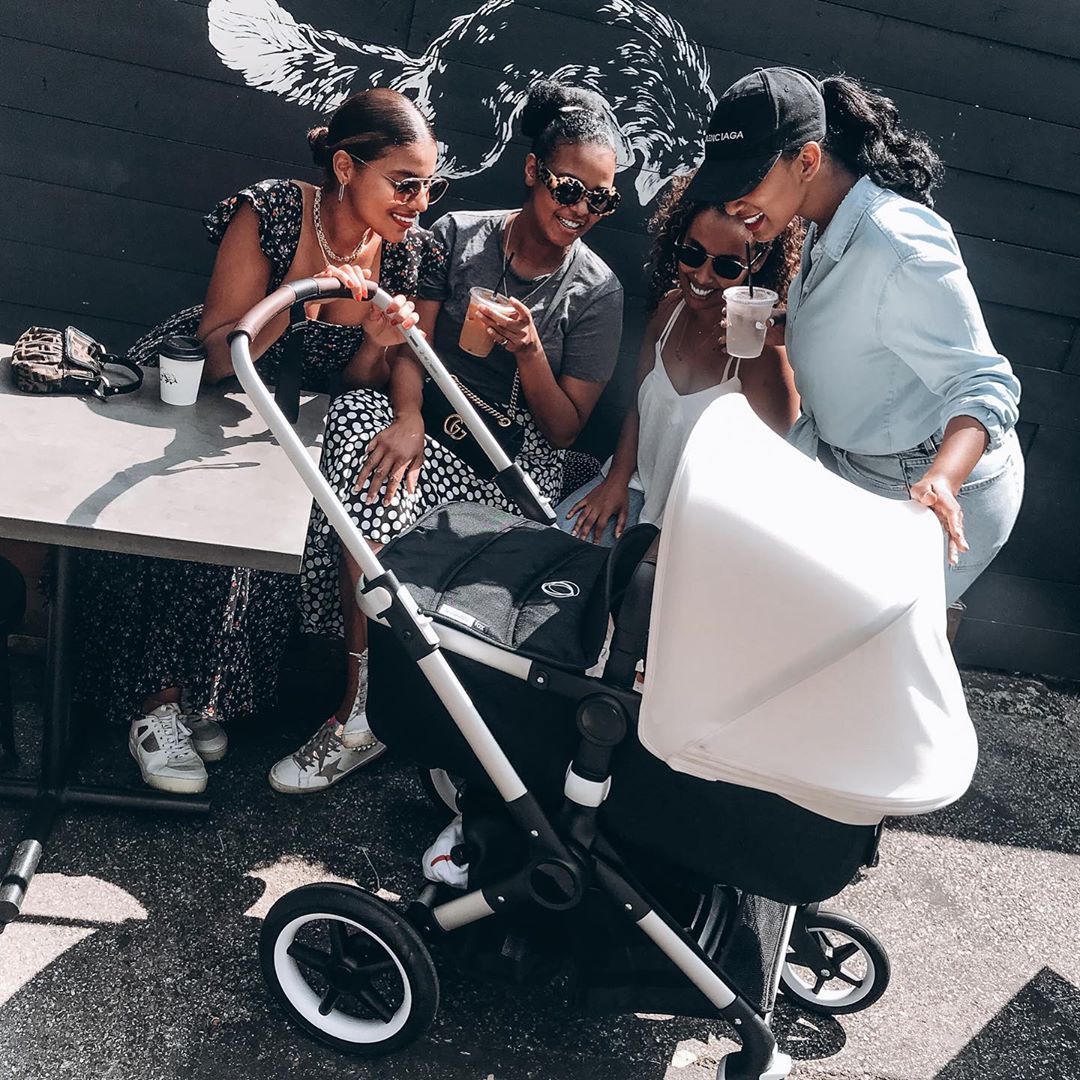
Dating in your 30s is significantly influenced by technology. From swiping through profiles to video calls, the digital landscape has become an integral part of the modern dating experience. This evolution requires a nuanced understanding of how to use technology effectively and ethically to build genuine connections.Technology has fundamentally reshaped the dating landscape, transforming how people meet, interact, and maintain relationships.
The ease of online connection, combined with the need for careful navigation, creates both opportunities and challenges for individuals seeking meaningful relationships in their 30s.
Influence of Social Media on Modern Relationships
Social media platforms have become crucial spaces for modern relationship development. They offer avenues for initial connection, shared experiences, and assessing compatibility. However, carefully curated online personas can mask true personalities, leading to potential mismatches. It is vital to be mindful of how online interactions reflect and influence real-life interactions. Authenticity is key to building lasting relationships.
Balancing Online and Offline Interactions
The key to successful modern dating is balancing online and offline interactions. Building a relationship solely online can lead to a lack of depth and a misrepresentation of the individual. While online platforms can be effective for initial contact, deepening connections requires real-life interactions. Meeting in person allows for a more comprehensive understanding of shared values, communication styles, and overall compatibility.
Utilizing Technology to Build Stronger Connections, Rules dating in your 30s
Technology can be leveraged to foster stronger connections. Using video calls to engage in meaningful conversations allows for a more personalized understanding of potential partners. Sharing experiences and interests online can provide a platform for deeper discussions and create common ground. Remember, authenticity and respect are vital.
Online Dating vs. In-Person Interactions
Online dating offers convenience and accessibility, allowing individuals to connect with a wider range of potential partners. However, it also presents the risk of superficial interactions and mismatches. In-person interactions, while potentially more time-consuming, allow for a more genuine assessment of compatibility. The most successful approach often involves a combination of both methods.
Evolution of Dating Technology
| Decade | Dating Technology | Description |
|---|---|---|
| 1990s | Bulletin Board Systems (BBS) | Early online forums and chat rooms provided initial avenues for communication. |
| 2000s | Social Networking Sites (e.g., MySpace, Facebook) | Platforms for networking and relationship building, leading to early forms of online dating. |
| 2010s | Mobile Dating Apps (e.g., Tinder, Bumble) | Dating became highly mobile and accessible. This shift introduced new challenges and expectations. |
| 2020s | AI-powered Dating Platforms | Advanced algorithms and AI are increasingly used to match individuals based on preferences and personality traits. This presents both benefits and potential biases. |
Closing Notes
In conclusion, navigating the dating landscape in your 30s requires a multifaceted approach. Understanding societal pressures, communication strategies, and the modern dating landscape is key. This discussion provides practical strategies for singles in their 30s to navigate the complexities of dating, build strong connections, and foster fulfilling relationships. Remember, dating in your 30s is a unique chapter, filled with personal growth, professional achievements, and the pursuit of lasting love.
Embark on this journey with confidence, knowing you’re not alone and that this guide provides valuable insights.


